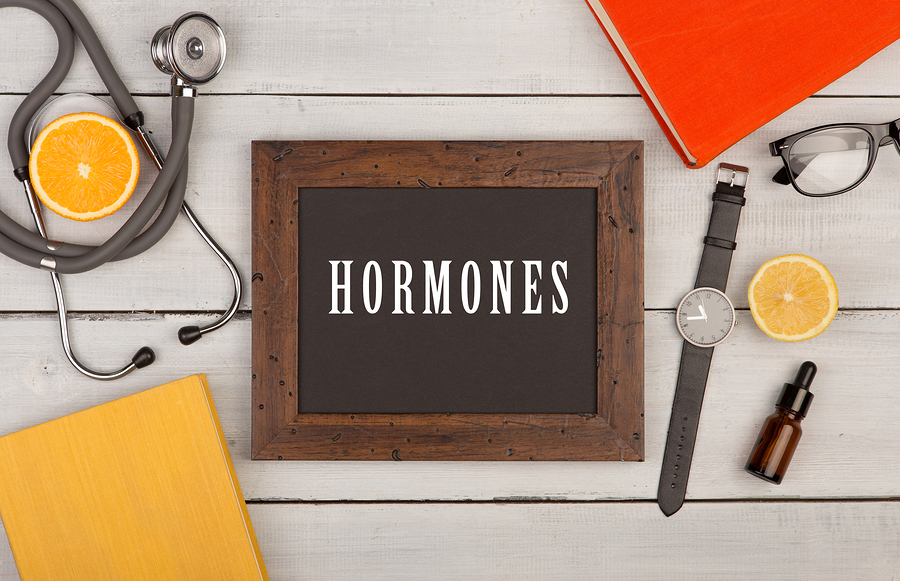- Make It Yourself Lavender Heart-Shaped Bath Bombs!
- 20 Things You Never Knew About “Down There”
- 12 Best Foods For Those Suffering From Arthritis Pain
- 12 Personal Hygiene Mistakes Almost Everyone Makes (Mom Never Told You About #4!)
- 15 Medicinal Plants And Herbs From The Cherokee People
- 12 Mind-Blowing Benefits Of Drinking Coconut Water During Pregnancy
- 12 Outstanding Winter Foods That Won’t Fatten You Up Like A Christmas Turkey
6 Natural Ways To Balance Hormones And Feel Good Every Single Day

Photo credit: bigstock.com
If you have ever had one of those days where you alternate between feeling like crying or screaming, then you have felt the power of hormones.
Think of hormones as the chemical messengers of the body. They tell our body when to increase our heartbeat, when we are ready to reproduce, and these things also tend to have a great deal of influence over our emotions.
Various glands in the body are responsible for the production of hormones to serve different purposes. These hormones then travel to their target organ, or tissues, and deliver the message that the gland wanted them to. This can affect not only our emotional behavior, but our physiology as well. Our hormones are responsible for a wide variety of processes including digestion, metabolism, growth, development, sexual function, respiration, sleep, mood, and stress response to name a few.
Most of our hormones are synthesized by the glands that make up the endocrine system. This would include the thyroid gland in the neck, the thymus gland in the chest, the pituitary gland and pineal gland in the head, the testes for men, ovaries for women, and the adrenal and pancreas in the abdomen.
Hormones effect both men and women and it is amazing how such a minute substance can affect us: Even how human beings behave. Often the most overt sign of hormones in action are teenagers. Their powerful hormonal fluctuations cause changes in physical features, skin changes, and erratic behavior. Pregnant and menopausal women often exhibit signs of hormonal changes.
As we age, our hormone levels decline. This results in many major changes which can affect not only quality of life, but our health as well.
For example, women undergoing menopause experience a decline in their levels of progesterone and estrogen, which causes many uncomfortable physical symptoms and erratic behavior for some. Men, also, experience lower testosterone levels, which affect their cardiovascular health, energy levels, sexual function, and moods.
Because our hormone levels affect our everyday lives, it only makes sense that we should do what we can to keep those hormones balanced using a multifaceted approach.
Keep reading for the 6 best tips to balance your hormones easily and naturally.
1. Reduce and Manage Stress Levels
Chronic stress can make an unbalanced hormone level even worse. Limit your stress as much as humanly possible. Rearrange your schedule so that you have some breathing room in your day-to-day life. Schedule in some “me” time every single day, even if it’s only 30 minutes. Remove negative people from your life or limit your contact with them. It is also helpful to learn ways to manage stress such as meditation, yoga and deep breathing exercises.
2. Try Bioidentical Hormone Replacement Therapy
Bioidentical hormones are synthesized from plant sources, however, they affect the body the same way that natural hormones do. If your symptoms are severe and affecting your life, there are a variety of replacements for hormones such as human growth hormone, thyroid hormones, estrogen, testosterone, DHEA, vitamin D, cortisol, and progesterone.
A visit to an endocrine physician can help you to understand which of these bioidentical hormones would work best for you. Ask plenty of questions and be sure that you understand perfectly the benefits and effects of these kinds of hormone replacement therapy.
Continue to Page 2

Photo credit: bigstock.com
3. Eat a Healthy Diet
Eating junk foods and fast foods can only make your hormone problem much worse. For example, a diet high in sugar can cause insulin levels to spike, which affects your testosterone and estrogen levels. Eating a diet high in dairy products or soy can negatively influence estrogen levels. Eat a low-sugar, low-carbohydrate diet. The Mediterranean diet is perhaps one of the most perfect diets on the planet. This diet plan focuses on vegetables, nuts, fruit, seeds and lean protein. Be sure that you eat healthy fats such as olive oil, fish, chia seeds, flax seeds, and avocados.
4. Get Plenty of Rest
Americans tend to look at rest as something for the old, weak, sick or lazy. However, sleep is vital for your body’s production of new hormones as well as the removal of old hormones. Lack of sleep alters your pituitary dependent hormones, metabolism hormones, and appetite controlling hormones, which might explain why so many Americans are fat – they are habitually sleep deprived. Get a minimum of 7 hours of uninterrupted sleep to ensure your body’s production of hormones does not go out of whack.
Continue to Page 3
5. Get Enough Exercise
You hear this a lot but that doesn’t make it any less true. Getting a minimum of 30 minutes of moderate exercise each day can go a long way towards maintaining proper hormone balance in addition to all the other benefits that exercise brings you. Yoga in particular has been shown to not only reduce belly fat levels, but helps to neutralize high adrenaline and cortisol levels. This results in better sleep, lower feelings of anxiety, and improved moods.
6. Choose Your Supplements Wisely
Omega-3s, found in high amounts in cold water fish, have been shown in numerous studies to help the body balance many different systems including the hormones, magnesium, and calcium. Both of which are also important to the production of hormones, as are vitamin D, A, E, and the B vitamins. While supplements can also cause problems, not using high quality vitamins are worse than none at all. Some supplements can go a long way towards helping you balance your hormones. Talk to your doctor or a nutritionist about which supplements might work for you, and for the proper dosage amount for your particular situation.
READ ALSO: 4 Super Food Groups That Give You Balanced Hormones And Great Skin
As always, if you are taking any prescription medications, or if you are under a doctor’s care for any health problem, please discuss any changes you plan to make to your diet or exercise program. Certain supplements can interact with some medications. Never stop taking your medication without speaking with your physician first.
With proper guidance, you are more than capable of naturally balancing your hormones.
References:

































